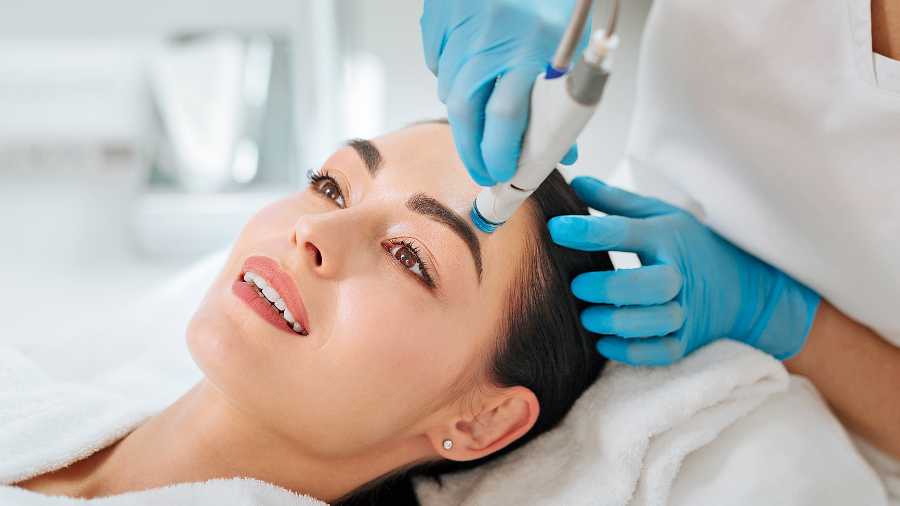Winter is an exciting time but with all the merriment come skin woes — dryness, itching, weeping eczema and a lot of other problems. There are certain skin-related diseases that tend to get worse during winter — psoriasis, atopic dermatitis, eczema and rosacea. If you are already suffering from these conditions, it would do you good to visit your dermatologist as soon as you experience a flare-up, instead of home remedies and self-medication.
Steps to avoid flare-ups
• Moisturise your skin well: If you have sensitive, eczema-prone skin, make sure you are using bland, fragrance- and paraben-free moisturisers, containing ceramides and natural moisturisation factors. If you suffer from psoriasis, you may want to increase the frequency of moisturisation.
• Avoid direct contact of woollens with your skin: While we love to wear coats and sweaters, if wool comes directly in touch with your skin, it can irritate, especially if you have sensitive skin. Wearing cotton clothes underneath your woollens helps prevent skin irritation.
• Avoid harsh soaps: Use fragrance-free bland soaps containing syndet if you have skin diseases such as eczema and atopic dermatitis.
• Maintain personal hygiene: Certain infectious diseases of the skin worsen during winters, such as fungal infections (like ringworm) and scabies. Personal hygiene plays an important role and daily baths are important to prevent skin infections.
• Use lukewarm water if you have sensitive skin: Avoid very cold or very hot water.
• Use humidifiers: Your skin can rapidly become dry in winters, especially if you are indoors and use a heating device. If you have sensitive, eczema-prone skin, use humidifiers to keep your skin calm and moist.
Winter skincare routines

Skincare routines can be confusing for most people. To find that perfect routine, perfect products that fit your budget and busy schedules can be a daunting task. Even people with the most well-behaved skin can face problems during winter. You can get a rash, redness, breakouts and you may suddenly see flakes of dandruff on your clothes. The most common reason for the problems is a change in skin barrier, which is a very important component of our skin. It protects our skin from environmental insults. When this barrier gets disrupted, our skin reacts and gets inflamed, which we see as rash, breakouts and redness.
Follow these tips and make adjustments in your skincare routine to prevent winter woes:
• Cleansers: Avoid harsh cleansers. You may want to get rid of cleansers containing alpha hydroxy acids and beta hydroxy acids altogether in winter. Use gentle cleansing products.
• Say ‘no’ to toners: You read it right. Ditch the CTM. Most toners are astringents and will end up drying out your skin to the point that it can become irritable.
• Moisturisers: If you want to maintain your skin’s barrier function you will need to moisturise, even if you have extremely oily or acne-prone skin. If you have very dry skin, choose thick moisturisers containing shea butter, mango butter and cocoa butter. If you have oily or combination skin, use light gel- or water-based moisturisers. If you are prone to cracked feet, use moisturisers that contain urea. Use moisturisers frequently, as many times as you need it.
• Sunscreen: Our exposure to the sun can be very high during winter because of so many outdoor activities during the day. Always load your skin with SPF every two-three hours.
• Make-up: Always take time to prep your skin before applying make-up. It can make your skin very dry and dehydrated. Ensure that you use moisturiser or primer before applying make-up and that you remove it thoroughly before sleeping. Always moisturise after removing make-up.
• Try to reduce active ingredients such as AHA, BHA, retinol in your night routine. You don’t have to give them up altogether but you definitely have to reduce the frequency and contact time. Do consult your dermatologist and ask her to guide you on how to use these products.
Winter haircare
• Dandruff can be a big problem during winter: Wash your hair with anti-dandruff shampoo or a prescription-based product. But remember to read the label on the shampoo bottle and use them as directed for maximum benefits. A common mistake people make is that they don’t rub the shampoo into the scalp for long enough.
• Always use conditioners: After shampooing, apply a conditioner to ensure manageable hair.
Skin treatments for winter
• HydraFacial: One of the most popular treatments globally, it incorporates comprehensive skin cleansing and infusion to make it healthy, clean and radiant. It’s best suited for winter because the products used are mild and not heavily exfoliating.
• Skin boosters: Hyaluronic acid is a natural polymer present in our skin. It has the ability to bind water and make skin supple and hydrated. Skin boosters containing hyaluronic acid are injected into the skin to hydrate it, resulting in fewer wrinkles and smoother, well-textured skin.
• Enzyme peels and laser toning: As a rule, we avoid harsh chemical peels and strong lasers during winter. But soft enzyme peels and gentle laser toning with Qs-ND YAG lasers can be very rewarding in winters to make skin even-toned with less pigmentation.
• Vampire facials: PRP facials or vampire facials involve collection of one’s own growth factors from their blood. These growth factors are concentrated and then infused in the skin. These natural growth factors generate collagen in the skin and hydrate it to make it look younger and more supple.

Dr Ishad Aggarwal, MD, is a consultant dermatologist. He is also a skin, laser and aesthetic medicine expert and a trainer for Botox and fillers. Find him on Instagram @skindoc_ishad
